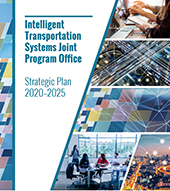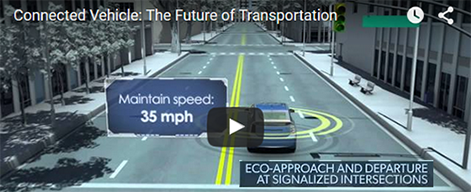News & Information
The U.S. Department of Transportation (USDOT) Releases New Publications
The USDOT has released several new reports highlighting its latest research initiatives and findings related to intelligent transportation system (ITS) technologies and connected vehicles:
- Connected Vehicle Pilot Deployment Program Phase 2, Data Management Plan - NYCDOT (FHWA-JPO-17-454): This document represents a data management plan that delineates all of the data types and data treatment throughout the New York City Connected Vehicle Pilot Deployment. This plan includes an identification of the New York City Connected Vehicle Pilot privacy-related data and its security treatment and the necessary filtering, anonymization, and obfuscation requirements needed for distributing the data for Independent Evaluator, USDOT, and researcher use. Data management processes include data categorization, data processing, data handling by administrators and custodians (including anonymization and privacy protection), data transmission (communication), storage, retrieval, purging, and record keeping.
- Connected Vehicle Pilot Deployment Program Phase 2, Comprehensive Installation Plan - WYDOT (FHWA-JPO-17-471): The Wyoming Department of Transportation (WYDOT) Connected Vehicle Pilot is intended to develop a suite of applications that utilize vehicle-to-infrastructure and vehicle-to-vehicle communication technology to reduce the impact of adverse weather on truck travel in the I-80 corridor. These applications support a flexible range of services from advisories, roadside alerts, parking notifications, and dynamic travel guidance. Information from these applications are made available directly to the equipped fleets or through data connections to fleet management centers (who will then communicate it to their trucks using their own systems). The pilot is being conducted in three phases. Phase I involved planning for the pilot including the concept of operations development. Phase II is the design, development, and testing phase. Phase III includes a real-world demonstration of the applications developed as part of this pilot.
- Integrated Modeling for Road Condition Prediction (FHWA-JPO-18-631): Transportation Systems Management and Operations is at a critical point in its development due to an explosion in data availability and analytics. ITS gathering data about weather and traffic conditions coupled with the imminent deployment of connected vehicles will bring an increase in data availability to power traffic and road condition predictions. This convergence of opportunities has led the Federal Highway Administration (FHWA) Road Weather Management Program to initiate research into integrated modeling for road condition prediction to investigate and capture that potential.
- Deployment of Intelligent Transportation Systems: A Summary of the 2016 National Survey Results (FHWA-JPO-18-639):This report presents summary results of the 2016 ITS Deployment Tracking survey, the most recent survey conducted through the ITS Deployment Tracking Project. The USDOT and the ITS Joint Program Office have pursued a research and development agenda, the ITS Program, designed to integrate the latest in information technologies to improve the safety, mobility, and reliability of surface transportation modes. Within metropolitan areas, implementation of these advanced technologies has been carried out by a variety of state and local transportation agencies. To measure the status of ITS deployment within the nation's largest metropolitan areas, the ITS Deployment Tracking Project has conducted a nationwide survey of state and local transportation agencies periodically since 1997.
- Final Report on Connected Vehicle-Enabled Weather Responsive Traffic Management (FHWA-JPO-18-648): Weather Responsive Traffic Management (WRTM) is an initiative under the FHWA's Road Weather Management Program that supports traffic management agencies and professionals in implementing effective advisory, control, and treatment strategies to mitigate transportation challenges due to adverse weather. Effective deployment of WRTM strategies depends on an agency's ability to collect and integrate traffic, weather, and road condition data to effectively analyze the impacts of weather conditions and deliver pertinent information back to the travelers. Connected vehicle-enabled weather responsive traffic management (CV-WRTM) is an approach that leverages vehicle connectivity to develop new tools for WRTM. Agencies face significant challenges in translating an interest in CV-WRTM to real-world applications, as there are many unknowns in converting research activities into implementation, including integration with the broader operational decision-making frameworks.
To learn more about the ITS Joint Program Office's research, please visit: www.its.dot.gov.










